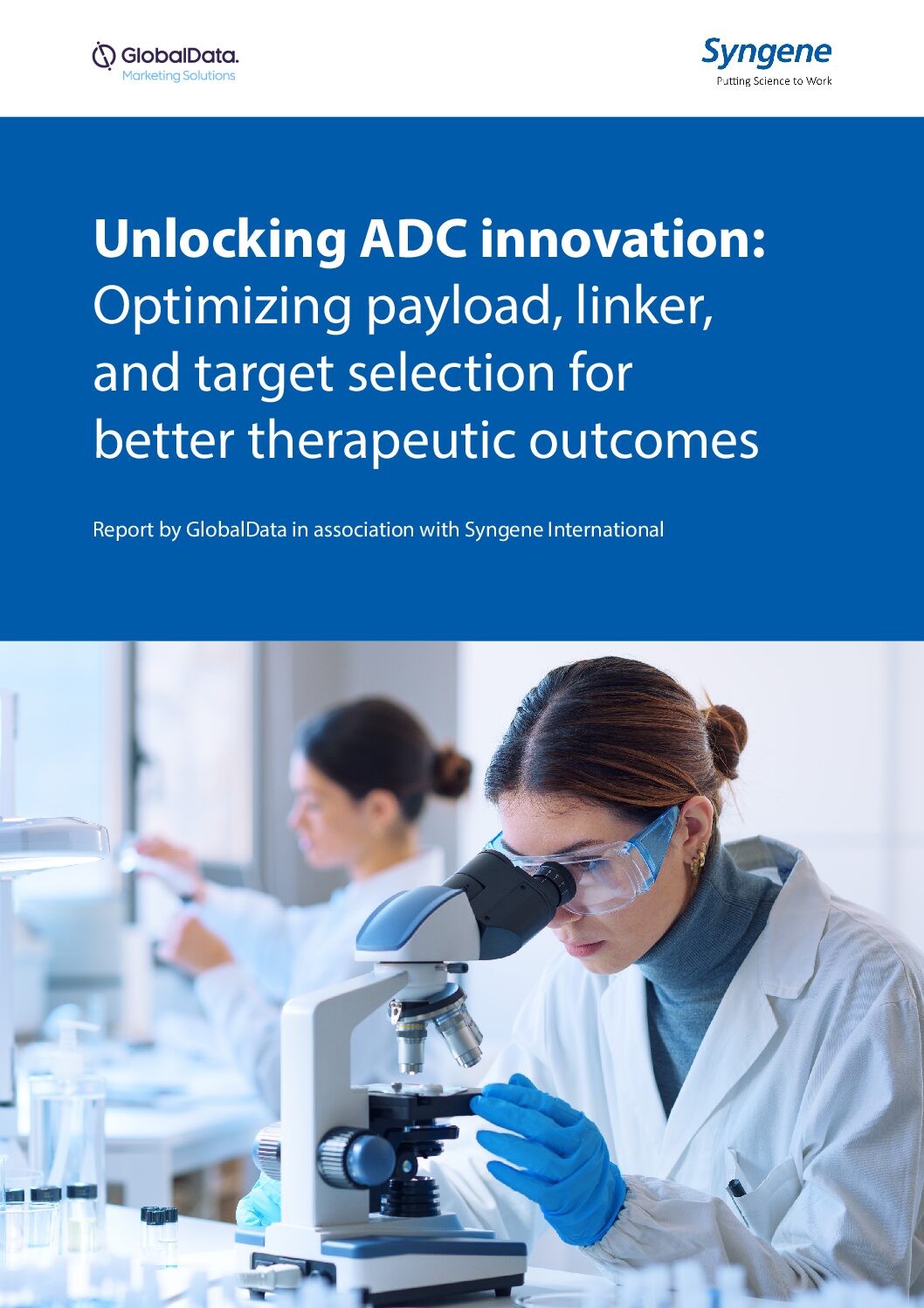

Antibody-drug conjugates (ADCs) continue to be à la mode in the oncology sector, with Merck & Co (MSD) tying up another deal to help advance its pipeline with the modality.
MSD’s deal comes in the form of $700m in funding secured from Blackstone Life Sciences. The tranche will go towards the pivotal development of sacituzumab tirumotecan (sac-TMT), an asset in Phase III trials for various types of tumours.

US Tariffs are shifting - will you react or anticipate?
Don’t let policy changes catch you off guard. Stay proactive with real-time data and expert analysis.
By GlobalDataSac-TMT is an ADC targeting trophoblast cell-surface antigen 2 (TROP2), a protein found on the surface of various cancer cells. According to the research and development agreement, Blackstone’s funding will help with MSD’s development costs for sac-TMT, which the latter expects to come throughout 2026.
“We believe the agreement supports MSD in developing sac-TMT, which has the opportunity to be broadly used across tumour types,” Citi analysts said in a research note.
In return for giving a financial hand to the drug’s clinical development, Blackstone is eligible to receive low-to-mid single-digit royalties on net sales of sac-TMT across all approved indications. However, this is first dependent on the ADC winning regulatory approval in the US for first-line treatment of triple-negative-breast cancer (TNBC).
That approval will hinge on results from the TroFuse-011 Phase III trial (NCT06841354). TroFuse-011 is one of 15 global Phase III trials evaluating sac-TMT across six tumour types, including endometrial, lung, and cervical cancers. Over the past few months, the therapy has yielded positive results from several of these studies, along with separate Chinese phase III trials conducted by Kelun-Biotech.
Sac-TMT was developed by Kelun-Biotech, with MSD acquiring the rights to the cancer drug in a deal worth up to $1.4bn with the Chinese biotech in 2022. MSD has the exclusive rights to develop, manufacture and commercialise sac-TMT in all territories outside of Greater China. The partnership with Kelun was expanded in 2022, covering seven ADCs.
The National Medical Products Administration (NMPA) has already cleared the drug for TNBC, making it the first direct competition in the market for Gilead Sciences’ Trodelvy (sacituzumab govitecan), which was approved in China in the same indication in 2022.
MSD doesn’t yet have an approved ADC but has five pipeline candidates, including sac-TMT, on which to pin hopes. The company is codeveloping three ADCs with Daiichi Sankyo while ilovertamab vedotin has demonstrated promise in diffuse large B-cell lymphoma.
ADC momentum continues
The ADC space has seen many billion-dollar deals as pharma companies look to shore up their pipeline with the emerging modality. The pick of the bunch was Pfizer’s acquisition of Seagen for $43bn in December 2023.
Although mammoth deals have cooled, there have still been notable transactions this year. In January 2025, Boehringer Ingelheim spent $1.3bn on a licensing deal with Synaffix for ADC technology on several undisclosed targets. In March, Taiho Pharmaceutical agreed to purchase Swiss-based ADC specialist Araris Biotech for up to $1.14bn while GSK spent $357.37m to acquire a preclinical prostate cancer ADC from French Biotech Syndivia last month.
ADC content on Pharmaceutical Technology (Or Clinical Trials Arena) is supported by Syngene. Editorial content is independently produced and follows the highest standards of journalistic integrity. Topic sponsors are not involved in the creation of editorial content.






